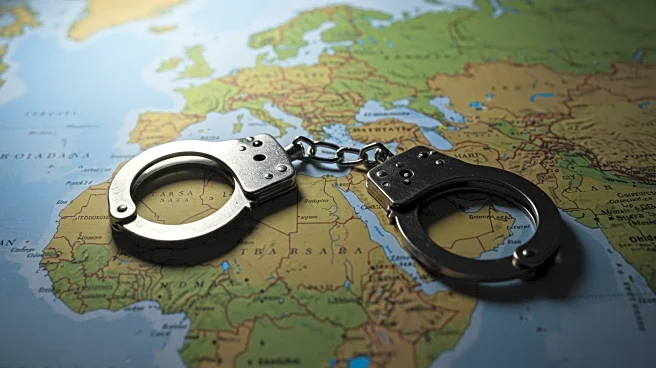What's Happening?
Israeli police used water cannons and made numerous arrests during widespread protests across the country. The demonstrations were organized by families of hostages held in Gaza, demanding a deal to secure their release. Protesters aimed to shut down the country with a one-day strike, blocking roads and closing businesses. The protests reflect growing frustration over the ongoing war in Gaza, with tens of thousands gathering in Tel Aviv and other locations. The conflict has led to a severe humanitarian crisis in Gaza, with Israeli airstrikes also targeting Yemen in response to missile attacks from Houthi rebels.
Why It's Important?
The protests highlight the increasing domestic pressure on the Israeli government to negotiate a resolution to the conflict in Gaza. The humanitarian crisis in Gaza, marked by malnutrition and displacement, is drawing international attention and criticism. The situation poses a significant challenge for Israeli Prime Minister Benjamin Netanyahu, who faces internal political pressures and the potential for coalition instability. The ongoing conflict and protests could impact Israel's international relations and its internal political landscape.
What's Next?
The Israeli government may face continued pressure from both domestic and international actors to find a resolution to the conflict. The potential for further military offensives in Gaza could exacerbate the humanitarian crisis and lead to more protests. The situation remains volatile, with the possibility of further escalations in both military actions and public demonstrations.
Beyond the Headlines
The protests and the humanitarian crisis in Gaza raise ethical and legal questions about the conduct of war and the treatment of civilians. The international community may increase calls for accountability and humanitarian intervention. The conflict also highlights the broader geopolitical tensions in the region, including the role of Iran-backed groups and the involvement of other regional powers.











